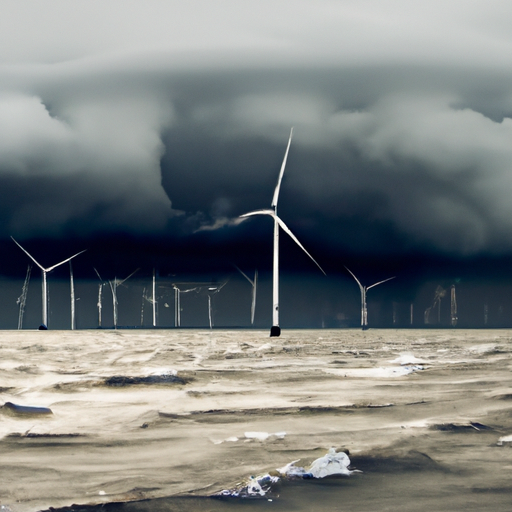Following the unsuccessful offshore wind auctions conducted by the UK government last September, the Global Wind Energy Council (GWEC) has called for a reassessment of strategies within the offshore wind industry worldwide. Despite repeated cautions regarding the feasibility of the process, the UK chose to maintain challenging conditions that prevented bidders from participating.
A Missed Opportunity for the Global Wind Industry
Ben Backwell, GWEC CEO, strongly advised policymakers to take a lesson from the UK’s failure, stressing the importance of not taking wind energy investors for granted. His reminder coincided with the wrap-up of a GWEC meeting in Melbourne, Australia, during which reports criticizing the UK government’s insufficient support for the offshore wind industry first emerged.
Lack of Affordable Bidding Options and Increasing Costs Add Fuel to the Fire
The reports highlighted an absence of definitive goals for future offshore wind projects and noted that this year’s auction price caps were noticeably lower than those set previously. In light of rising offshore wind project-development costs due to inflation and supply chain disruptions, the lower caps discouraged developers from offering bids that would have been both competitive and profitable.
Implications for Global Regions Aspiring for Offshore Wind Development
The failed UK auctions should serve as a warning for other regions, especially those located in the Asia-Pacific (APAC) and Latin America, harboring ambitious plans for offshore wind expansion. Successful process replication requires prioritization of collaboration between governments and industries to expedite the launch of renewable energy solutions, rather than repeating the UK’s errors.
The Importance of Governmental Collaboration
Certain countries, such as the Philippines and Vietnam, offer models of effective public involvement in green initiatives, emphasizing the need for cooperative relationships to ensure successful implementation of renewable energy projects. GWEC analysts also declare that offshore wind industry developers are willing to collaborate with governments, as long as mutual challenges are acknowledged and dealt with appropriately.
The Road to Achieving Projected Offshore Wind Capacity
A recent report by GWEC projected a colossal 380 GW of offshore wind capacity to be installed within the next decade, a goal that requires amplified cooperation between industry and governments. Backwell reiterated this point, criticizing the UK government for not adequately accounting for cost inflation and increased capital costs. These oversights resulted in the failed offshore wind auction, and warn against the occurrence of similar pitfalls in the future.
Wind Energy’s Role in a New Global Energy System
This year marked a significant achievement for the global wind industry, which exceeded 1 terawatt of global wind capacity. This milestone accentuates the prominent role of wind energy in establishing a new energy system that delivers sustainable and cost-effective energy.
The Need for a Supportive Environment for the Offshore Wind Industry
The unsuccessful UK offshore wind auction calls into question how supportive the government is of the offshore wind industry. Pledges to achieve net zero emissions by 2050 put offshore wind in focus, yet the failed auction implies more work is needed to ensure robust industry growth and development of new projects.
The Future of the Offshore Wind Industry
Backwell warns that other international markets are seeking clean energy investments, placing the UK in a state of competition. The UK government should attract investments with policies that capitalize on the substantial potential role of offshore wind energy during the energy transition, rather than adopting a low pricing strategy that makes investment impossible. An official GWEC press release urges the UK government, as well as other worldwide governments, to learn from this auction and establish price caps that encourage participation in offshore wind auctions.


























